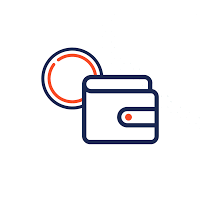The best software and hardware crypto wallets with reviews, comparisons, and tutorials for various blockchains and cryptocurrencies.
Best Cryptocurrency Wallets

To hold any cryptocurrency, you will need a cryptocurrency wallet. The software wallets, browser extensions, and web-based ones are free and can be installed and used immediately. There is also a significant expansion of the mobile wallets for Android and iOS devices, along with the smartphone’s growing popularity and ease of use.
Find the best wallets to receive, send, store, hodl!, stake, connect to blockchain DApps, or do any other transactions while keeping your cryptocurrency fully secure.
On CadaNews, you will find pages for the best wallets for Bitcoin BTC, Ethereum ETH, Cardano ADA, Polkadot DOT, Solana SOL, Ripple XRP, Stellar XLM, Cosmos ATOM, Tron TRX, Hedera Hashgraph HBAR, Render, Fantom FTM, Avalanche AVAX, Polygon POL, Filecoin FIL and more.
All the wallets are tested, and their information is regularly updated, like the articles.
The selection also represents our vision of the value, technological background, and buyer’s sentiment, including big investors for the mentioned cryptocurrencies. We had the first Binance Smart Chain wallets article on the web, Cardano when it was a couple of cents, and Solana and Polkadot when they were 15-30 times cheaper, so bear that in mind. We are the crypto holders, most of which are part of our cryptocurrency portfolio.
Hardware Wallets: Maximum Security for Your Digital Assets

Hardware wallets are the physical devices you can buy and are the only ones that provide full safety for your cryptocurrency.
They are securing your private key inside the safe chip where all cryptocurrency transactions are signed internally using it. Thus, they are also referred to as cold wallets or cold storage, as opposed to hot wallets, which are software wallets connected to the internet, and your ownership of the coins is put at risk by hackers.
The recovery phrase or seed, sometimes called mnemonics, is a form of your private key that gives you ownership over your wallet – coins. You will get it every time you open a free software wallet (non-custodial one), and it is shown on your PC or Mobile; however, this information can be easily snatched like all the others by the hackers, and you lose all your cryptocurrency. The software wallets can also have all kinds of bugs, issues, and troubles that will put your cryptocurrency at risk.
As for the hardware wallets, the recovery phrase is shown on the physical device itself, and you write it down and keep it safe, or even use the Mnemonic steel cases and capsules the hardware wallet shops usually provide, which are fireproof, waterproof, almost indestructible.
Most software wallets enable hardware wallet integration to provide safety for their users. However, they act only on the “front end” – the cryptocurrency public address is provided by your hardware wallet (and derived from the private key). And they never get in touch with your private key, which is used to sign the transactions and is never exposed.
Check out the 11 Best Hardware Wallets in 2025.
Cardano Blockchain

From the beginning, we recognized the immense potential of the Cardano blockchain, the innovative technology behind it, and its cryptocurrency, $ADA.
While many other projects and their leaders focused on grabbing headlines and chasing profits—particularly during the ICO boom and subsequent crash in 2018—Cardano took a scientific approach, progressing steadily and methodically.
If you’re ready to dive deeper into the Cardano ecosystem, explore our carefully curated resources:
- Best Cardano Wallets: Discover the top wallets to securely store your $ADA and access features like staking and governance.
- Best Hardware Wallets for Cardano – Discover the best Cardano hardware wallets to securely manage your ADA and other Cardano-based tokens
- Cardano Staking: Learn how to stake your $ADA for passive rewards while supporting the network’s security and decentralization.
- Cardano NFTs: Explore the thriving world of Cardano NFTs, including how and where to buy and sell Cardano NFSTs with the list of the best Cardano NFT marketplaces.
BNB Chain

Binance, with its BNB coin, which has the major utility of being used for lower transaction fees on trades, has been the most popular cryptocurrency exchange for a long time.
Binance has a dual-chain architecture with 2 parallel and fully interoperable blockchains. The first chain facilitates fast trading with the biggest dApp on its decentralized exchange, Binance.org, and the other is Binance Smart Chain, also known as BNB Chain, which provides better smart contract functionality and the ability to build decentralized apps.
You can check our 6 Best Wallets for BNB Chain in 2025 article. Explore the best BNB Chain wallets to securely manage BNB and BEP-20 tokens, stake BNB, and connect to BNB Chain dApps.
